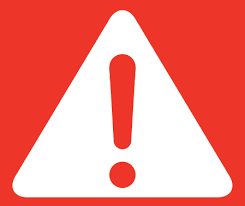Every business relationship has its ups and downs, and in most cases both parties work to overcome conflicts and get things back to normal. We like what we’re used to and especially in professional services relationships there’s a lot of value placed on background knowledge and experience.
especially in professional services relationships there’s a lot of value placed on background knowledge and experience.
In our highly competitive times it’s more likely than ever that your clients are being approached by other firms to handle their business, often on the basis of reduced costs or promises of add-on services that you would either charge more for or can’t provide. It’s important that you know and recognize danger signals from your clients that the relationship might not be on ground that’s as solid as you think.
In fact, think back to the last time you lost a client and see if some of these danger signals look a bit familiar.
Your Fees are Too High
This can come in the form of a request to review your charges, or perhaps an invoice is returned with the comment that ‘It’s simply higher than market rates”. Sounds like your client’s been approached by one of those price-cutting competitors who may even have got a look at your invoice for comparison purposes.
Your Client contact is Unavailable
There’s usually a key contact person at a client’s office — someone that’s always on your side and slips you bits of inside information about what’s really going on. Suddenly they’re not available, even for lunch at their favorite restaurant. They don’t return your calls and they certainly don’t initiate any conversations.
You Show Up — They Don’t!
You have a scheduled meeting that’s been in the diary for some time. At the appointed moment you show up but they seem to have forgotten all about it. The client’s key personnel are unavailable and the only people who are available aren’t the ones you really wanted to see.
Your Meeting is Postponed
The date was set and you’re all ready to go. Suddenly — and it’s usually at the last moment, your client cancels the meeting. The explanation is vague and when you try to schedule a new meeting your client makes excuses and isn’t very helpful. (This often happens at one of those annual meetings where the agenda includes plans for the coming year.)
Your Information Dries Up
There’s usually a flow of information from your client’s office to yours that might include things like revenues or the stages of new product development. You’ve always been kept informed about the state of your client’s business — until now. Suddenly you really don’t have any idea about how they’re performing.
So, one or more of these danger signals are flying and your suspicions are aroused. The last time you saw danger signals like these the client not only sent you a very brusque letter but spent six months arguing with you about your final invoice. It’s time to do something, and quick!
Verify Your Position
You have the feeling you might be on thin ice but you need to know for sure. Have a chat with everyone you know at the client’s office, even if they’re just casual acquaintances and not your (former) key contact. Sound them out to see what might have changed in your relationship with their business. If they’re evasive it will tell you just as much as if they told you your firm is on its way out the door.
Get Yourself Together
Unless it’s simply that your client has received a better offer you probably have some idea about why things are out of kilter. Sit down with your team and put all your information together. It should enable you to spot the source of the problem and work out what you might do to counteract it. If you’ve made an error think about what might fix it.
Go to the Top
There’s no point in trying to resurrect your relationship at a lower level. If there’s a problem at the top, go there to resolve it. Be upfront and start by saying you’re aware of the problem. If it’s your firm’s fault, admit it and propose a solution. Remind your client of the extent of your relationship and anything you’ve done for them. Be prepared to justify your charges if that’s an issue, but don’t immediately agree to reduce them; it makes you appear to have been overcharging them all along.
Getting a client takes work. Maintaining the relationship should take even more work but too often we relax too early. Stay in touch with your client’s needs and let them know you’re always there to satisfy them.
Once the danger signals start flying it may already be too late. You have nothing to lose so try as hard as you can, but if someone else has managed to get in under your guard it really means that you haven’t been paying enough attention to the situation.
Copyright 2004, RAN ONE Inc. All rights reserved. Reprinted with permission from www.ranone.com

 Chris’ combination of academic credentials, career experience and temperament ideally suit his calling as a business development advisor. Clients say he has a mind for business and a heart for service.
Chris’ combination of academic credentials, career experience and temperament ideally suit his calling as a business development advisor. Clients say he has a mind for business and a heart for service.